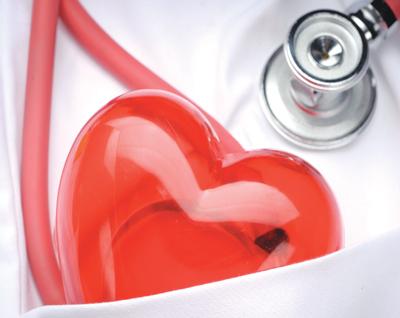What Men and Women Need to Know About Heart Disease
February is National Heart Month and we want you to be informed. Knowledge allows you to make choices about your health. This information is relevant for everyone!
The term heart disease encompasses a number of
health conditions, including valve and rhythm problems,
called atherosclerosis, or the tende ncy to form
plaque in the arteries. Atherosclerosis is also sometimes
called coronary artery disease. Coronary artery
disease can also cause angina — chest pressure or
tightness associated with shortness of breath that occurs
during exercise — and it is the leading cause of
heart attacks.
ncy to form
plaque in the arteries. Atherosclerosis is also sometimes
called coronary artery disease. Coronary artery
disease can also cause angina — chest pressure or
tightness associated with shortness of breath that occurs
during exercise — and it is the leading cause of
heart attacks.
Who Gets Heart Disease?
Heart disease affects men in their early 60s and 70s and women around 10 years later. The later onset in women is thought to be due to the protective effects of the hormone estrogen, which women have in abundance through their childbearing years and which gradually declines after menopause.
What Causes Heart Disease?
Heart disease is caused by an inflammatory process that is the result of a number of different factors. Some of the biggest culprits are cholesterol, nicotine from smoking cigarettes, LDL particles from cholesterol and high levels of glucose (blood sugar). All of these irritants can inflame the delicate lining of the arteries. In response to the inflammation, the arteries start to form plaque.
A heart attack occurs when plaque becomes so inflamed that it ruptures, breaking off and forming a clot that blocks the artery and cuts off the blood flow to the heart. About 50 percent of the heart attack victims do not survive, and the other 50 percent of the cases need to be rushed to the hospital for treatment. A drug to dissolve the clot, angioplasty to open up the artery, or surgery are the treatments available.
How Can Heart Disease Be Reversed or Prevented?
The best preventative treatment is a diet high in Omega-3 fish oils, low in trans fats and that includes plenty of fruits, vegetables and fiber and no fried, greasy foods. Also, aiming for 150 minutes of moderate to vigorous activity a week and maintaining an ideal weight are important preventative measures.
People who really get strict with their diet and exercise and live the right lifestyle can shrink plaque. They may not be able to completely erase it, but as long as you prevent the progression and stabilize the plaque so it’s no longer inflamed and not likely to rupture, then you’ve really accomplished a lot. Of course, there’s some genetic predisposition to heart disease.
How People with Heart Disease can be assisted?
A person with issues related to heart disease, whether a senior or not, could benefit from hiring a professional caregiver who could maintain the home, plan and prepare healthy meals, drive to appointments and keep the individual engaged in activities. This assistance could be for a few days or ongoing, depending upon the situation.
What to do now?
Now that you know more about heart disease consider your personal situation, consult your physician and make adjustments under his/ her care.
Photo: Heart disease is caused by an inflammatory process that is the result of a number of different factors.

 How to resolve AdBlock issue?
How to resolve AdBlock issue? 








